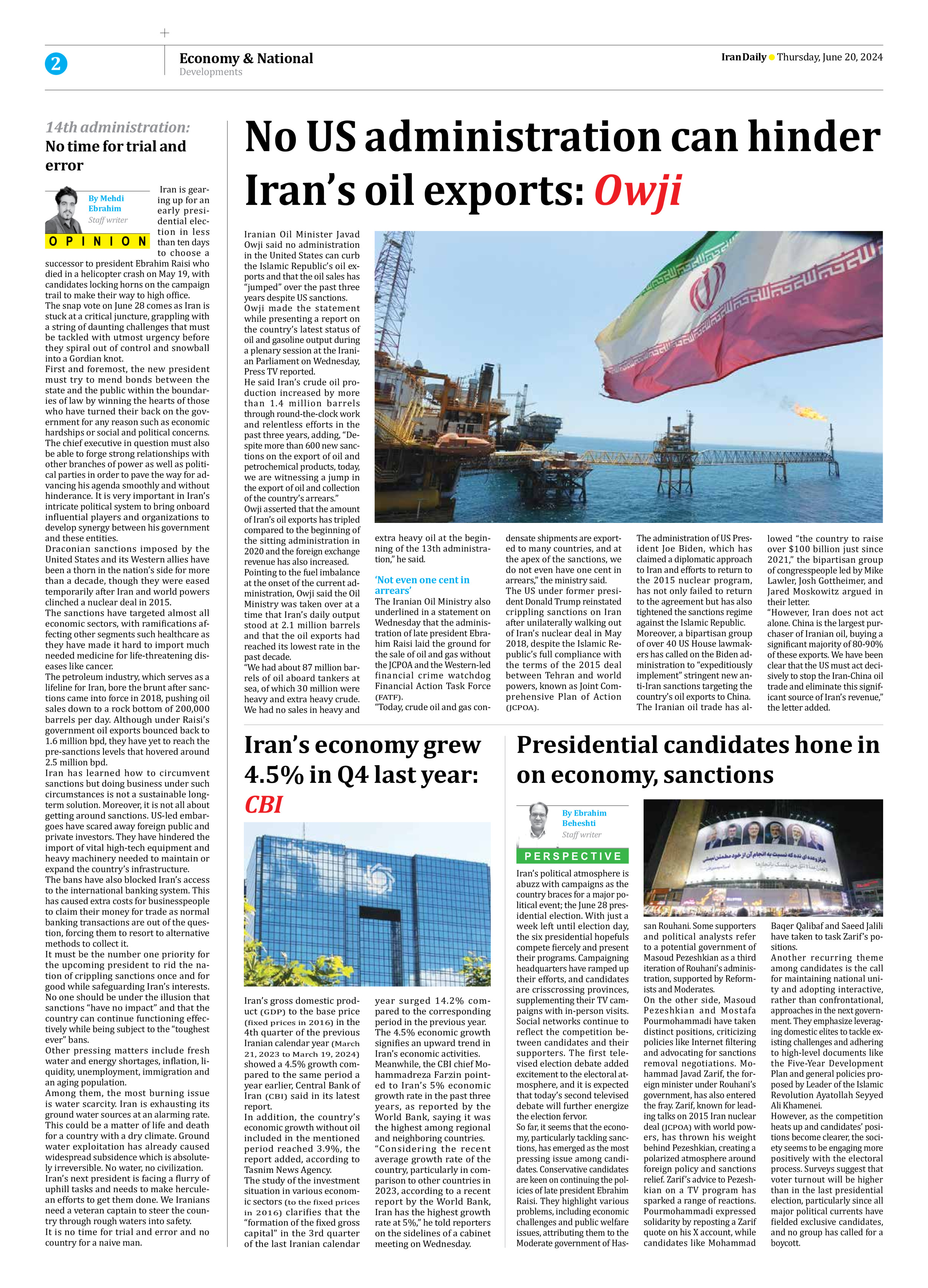
14th administration: No time for trial and error
By Mehdi
Ebrahim
Staff writer
Iran is gearing up for an early presidential election in less than ten days to choose a successor to president Ebrahim Raisi who died in a helicopter crash on May 19, with candidates locking horns on the campaign trail to make their way to high office.
The snap vote on June 28 comes as Iran is stuck at a critical juncture, grappling with a string of daunting challenges that must be tackled with utmost urgency before they spiral out of control and snowball into a Gordian knot.
First and foremost, the new president must try to mend bonds between the state and the public within the boundaries of law by winning the hearts of those who have turned their back on the government for any reason such as economic hardships or social and political concerns.
The chief executive in question must also be able to forge strong relationships with other branches of power as well as political parties in order to pave the way for advancing his agenda smoothly and without hinderance. It is very important in Iran’s intricate political system to bring onboard influential players and organizations to develop synergy between his government and these entities.
Draconian sanctions imposed by the United States and its Western allies have been a thorn in the nation’s side for more than a decade, though they were eased temporarily after Iran and world powers clinched a nuclear deal in 2015.
The sanctions have targeted almost all economic sectors, with ramifications affecting other segments such healthcare as they have made it hard to import much needed medicine for life-threatening diseases like cancer.
The petroleum industry, which serves as a lifeline for Iran, bore the brunt after sanctions came into force in 2018, pushing oil sales down to a rock bottom of 200,000 barrels per day. Although under Raisi’s government oil exports bounced back to 1.6 million bpd, they have yet to reach the pre-sanctions levels that hovered around 2.5 million bpd.
Iran has learned how to circumvent sanctions but doing business under such circumstances is not a sustainable long-term solution. Moreover, it is not all about getting around sanctions. US-led embargoes have scared away foreign public and private investors. They have hindered the import of vital high-tech equipment and heavy machinery needed to maintain or expand the country’s infrastructure.
The bans have also blocked Iran’s access to the international banking system. This has caused extra costs for businesspeople to claim their money for trade as normal banking transactions are out of the question, forcing them to resort to alternative methods to collect it.
It must be the number one priority for the upcoming president to rid the nation of crippling sanctions once and for good while safeguarding Iran’s interests. No one should be under the illusion that sanctions “have no impact” and that the country can continue functioning effectively while being subject to the “toughest ever” bans.
Other pressing matters include fresh water and energy shortages, inflation, liquidity, unemployment, immigration and an aging population.
Among them, the most burning issue is water scarcity. Iran is exhausting its ground water sources at an alarming rate. This could be a matter of life and death for a country with a dry climate. Ground water exploitation has already caused widespread subsidence which is absolutely irreversible. No water, no civilization.
Iran’s next president is facing a flurry of uphill tasks and needs to make herculean efforts to get them done. We Iranians need a veteran captain to steer the country through rough waters into safety.
It is no time for trial and error and no country for a naive man.







